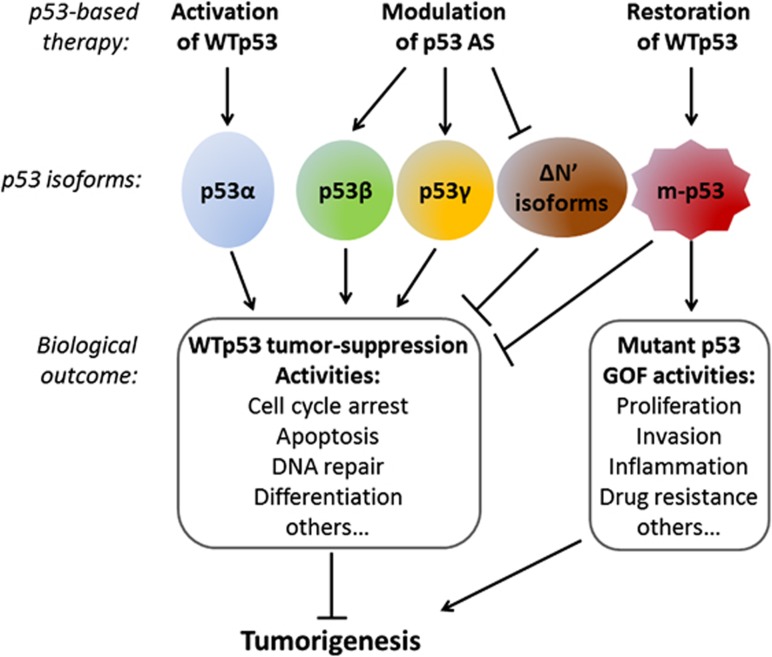Figure 1.
The roles of p53 isoforms in carcinogenesis. Whereas the full-length wild-type p53 (WTp53) tumor suppressor (also named p53α) has a key role in preventing tumorigenesis, mutant p53 (m-p53) can inhibit these activities in a dominant negative manner and can exert oncogenic gain-of-function (GOF) activities. The expression of p53 isoforms is aberrant in tumor cells and could either enhance or inhibit the tumor-suppressive activities of WTp53, dependent on the cellular context. In principle, p53β and p53γ isoforms were found to enhance WTp53 tumor-suppressive functions, whereas isoforms deleted in p53 N′-terminal (such as Δ40p53 and Δ133p53) were found to exert dominant negative effects on WTp53. Apparently, the balance between the expression of the various isoforms has a role in carcinogenesis. Accordingly, the developing p53-based cancer therapies are focused on the following: over-activating WTp53 (e.g., Nutlin-3), restoring WTp53 in mutant p53-expressing tumors by re-activating compounds (e.g., PRIMA-1) and modulating p53 alternative splicing (AS) to reach the p53 isoform ration that allows beneficial therapy11

